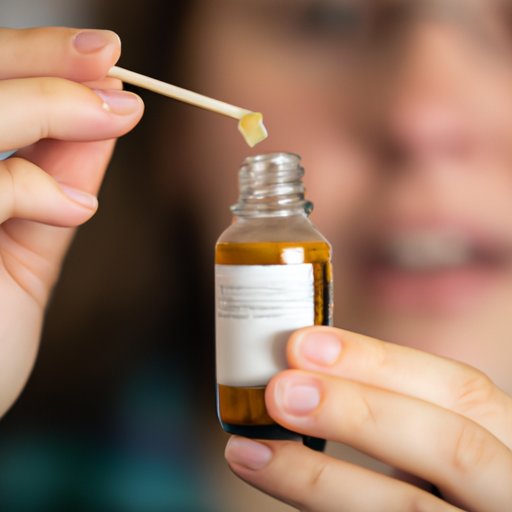Gum Disease: Causes, Symptoms, and How to Treat It
Gum disease is a common dental issue that affects millions of people worldwide. Gum disease, also called periodontal disease, is a condition where gum tissue becomes inflamed and infected. Gum disease can eventually lead to tooth loss, making it crucial to seek immediate treatment. This article aims to provide an in-depth guide on how to treat gum disease.
Causes of Gum Disease
Plaque buildup is the primary cause of gum disease. When plaque is not removed by brushing and flossing regularly, it can harden and turn into tartar. Tartar buildup can irritate the gums and cause inflammation, leading to gum disease.
Symptoms of Gum Disease
Gum disease symptoms include bleeding and tender gums, bad breath, receding gum line, loose teeth, mouth sores, and tooth sensitivity. It is essential to seek immediate dental attention once you experience these symptoms.
Overview of Treatment Options
Preventing and treating gum disease involves regular brushing and flossing to remove plaque and tartar buildup. In more severe cases, a deep cleaning treatment, such as scaling and root planing, may be needed to remove tartar under the gumline. Surgery is also a treatment option for severe gum disease. Surgical procedures may include gum grafts or flap surgery.
5 Proven Treatments for Gum Disease: Expert Advice
There are several treatment options for gum disease. Scaling and root planing is a deep cleaning procedure that removes tartar from above and below the gum line. Laser therapy is another treatment option that uses light to remove diseased tissue and promote healthy tissue growth. Antibiotics, such as pills or gels, can also be prescribed to fight bacterial infections. Gum grafting surgery can be done to replace lost gum tissue and stop gum recession. Finally, enzyme suppressants are drugs that block chemicals that damage gum tissue, which can reduce inflammation.
Expert Opinion or Advice on Treatment Options
According to dental experts, scaling and root planing is one of the most effective gum disease treatments when done correctly. Laser therapy is also an excellent option, but it is more expensive, and the effectiveness is still under study. In severe cases, surgery may be necessary, but it is usually a last resort. Antibiotics can be effective, but they are not recommended for long-term use.

Healing Gum Disease at Home: DIY Remedies to Try
There are also home remedies that can help treat gum disease. Brushing with a fluoride toothpaste and flossing regularly can help remove plaque and prevent gum disease. Rinsing with saltwater can help reduce inflammation, while oil pulling with coconut oil can help remove harmful bacteria. Herbal supplements, such as chamomile tea and green tea, can reduce inflammation, while aloe vera gel can help soothe inflamed gums.
Benefits and Risks of DIY Remedies
Dental experts recommend that home remedies should be used as a supplement to professional treatment. While remedies like saltwater rinses and oil pulling are generally safe, using them excessively can cause more harm than good. Some herbal supplements can interfere with prescribed medications, making it essential to consult with a healthcare provider before trying them.
The Ultimate Guide to Treating Gum Disease Naturally
Natural remedies can be used to help reduce inflammation and promote healthy gums. Turmeric has anti-inflammatory properties, while vitamin C supplements can help prevent gum disease. Oil pulling and saltwater rinses can remove harmful bacteria, while hydrogen peroxide rinses can help whiten teeth. Green tea may also reduce inflammation associated with gum disease.
Scientific Evidence of Natural Remedies
Several studies support the effectiveness of natural remedies. For example, a study published in the Journal of Indian Society of Periodontology found that turmeric gel can be used to reduce gum inflammation. A study published in the Journal of Traditional and Complementary Medicine found that oil pulling is effective in reducing bacteria that cause chronic gum disease.
Precautions and Risks Associated with Natural Remedies
Natural remedies are generally safe, but some precautions must be taken. For example, some herbs can interfere with prescribed medications or raise blood pressure. Hydrogen peroxide can be dangerous if ingested, and overuse can damage tooth enamel.
Medications That Can Help Treat Gum Disease
Medications prescribed for gum disease include antibiotics, antimicrobials, and pain relievers. Antibiotics can be prescribed to fight bacterial infections, and antimicrobials can be used to reduce bacteria in the mouth. Pain relievers can help reduce inflammation and relieve pain. It is essential to consult with a dental professional before taking any medication.
Risks and Benefits of Medications
Medications for gum disease can have side effects such as diarrhea, nausea, and reduced taste. Antibiotics should be used cautiously, as overuse can lead to antibiotic resistance. Antimicrobials can cause staining of teeth and tongue. Pain relievers can be addictive if used excessively.
Preventing Gum Disease at Home
Preventing gum disease is better than treating it. Brushing your teeth twice a day with a fluoride toothpaste and flossing daily can prevent plaque buildup. Using an antiseptic mouthwash can help kill bacteria that cause gum disease. Quitting smoking and reducing sugar intake can also improve gum health.
Tips for Good Oral Hygiene
Good oral hygiene habits include using a soft-bristled toothbrush, flossing between teeth, and using a fluoride toothpaste. Brush your teeth for at least two minutes, twice a day. Replace your toothbrush every three to four months. Visit your dentist every six months for checkups and cleanings.
Conclusion
Gum disease can lead to severe dental issues, so it is essential to seek treatment as soon as you notice symptoms. Professional dental care is the most effective way to treat gum disease, but natural remedies and good oral hygiene habits can be used as a supplement. Remember to consult with your healthcare provider before taking any medications or home remedies to ensure your safety.
